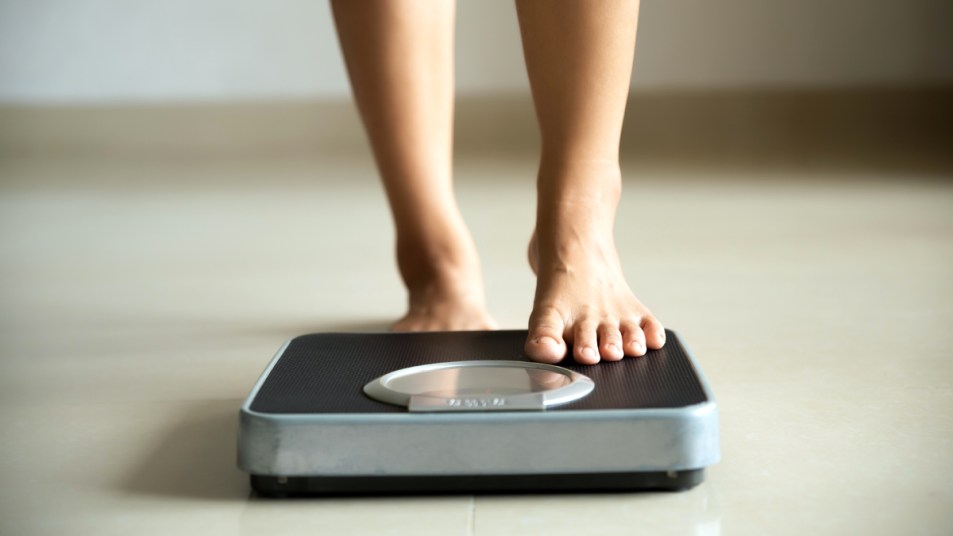Why Does It Always Seem Impossible to Lose Those Last 5 Pounds?

Whether you’ve been cutting carbs for a ketogenic diet, following the Mediterranean way of eating, or just keeping a close eye on your calorie intake, sticking to a weight loss plan is no walk in the park (although that is a nice way to get some exercise in). Even if you manage to avoid constant temptations to over-indulge and happily watch as inches melt away, there always seems to be those last five pounds that just refuse to budge.
Peter Rogers, a member of the British Nutrition Foundation scientific advisory committee, recently shared some thoughts on this frustrating issue. According to him, there are two factors that make it feel impossible to shed those stubborn stray pounds. “The first reason is that calorie (energy) expenditure decreases with weight loss. This ‘slowed metabolism’ happens because fewer calories are required to maintain and move a lighter body.”
The second (and seemingly more important) factor has to do with how hungry we feel after losing weight. “The hormone leptin tells our brain how much fat is stored in our body,” he says. “When we have more fat stored, leptin increases and reduces appetite. But when we lose body fat, the leptin ‘brake’ on our appetite is partly released, making us a little more hungry.”
Rogers cites a study where participants were offered servings of pizza and told to eat until they felt “comfortably full.” When they were later asked to eat as much as they want, they doubled the amount they consumed. “This shows that we’re almost always ready to eat — and capable of eating beyond a level of comfortable fullness,” he explains. “We’re prone to overeat high-calorie foods for two reason: They’re less filling per calorie and they’re more delicious (pleasurable) to eat.”
For instance, eating the same amount of calories from apples would be more filling for longer periods than pizza — but who would choose apples over pizza? Especially when we feel like we’ve earned a treat for “being good” for so long. “It’s hard to maintain vigilance and restraint to resist our desire to eat delicious, higher energy-dense foods,” Rogers writes. “Dieting lapses are therefore inevitable, and over time our motivation to maintain eating restraint and increase physical activity may weaken. This can add further to the perception that the last five pounds is harder to lose.” Basically, it’s our nature to eventually give into meals we believe will give us more pleasure, which makes those lingering pounds inch away from us again.
However, another study found that we don’t even really get that much pleasure from those more indulgent foods. “Choosing to eat 100 grams of strawberry yogurt instead of 100 grams of strawberry cheesecake may be less pleasurable — but only slightly,” he explains. In fact, you might even find yourself getting more pleasure from the healthier option instead of the high-calorie one over time, which could be the key to nipping those last few pounds in the bud.
“Overall, our weight settles around a point that is a balance between the lure of the foods that we include in our diet, our eating restraint, and the energy we expend in physical activity,” Rogers sums up. “We can change all three, although choosing foods with lower energy density may be an especially effective strategy to reduce weight.”
All that said, it also helps to not stress out about a few extra digits on your scale. Sure, it might be frustrating to not hit a specific number, but as long as you’re maintaining healthy eating habits and feeling better, you’re still achieving your goal! And we certainly won’t judge you for grabbing a slice (or two) of pizza every now and then.












